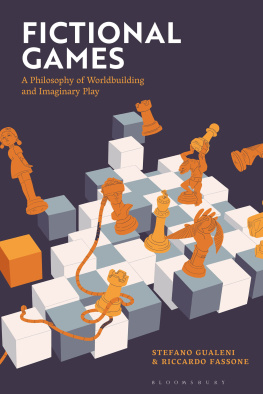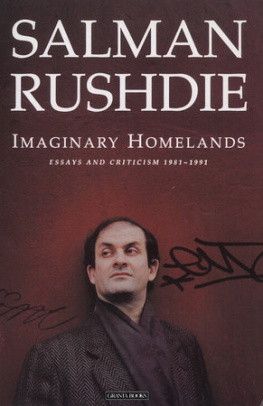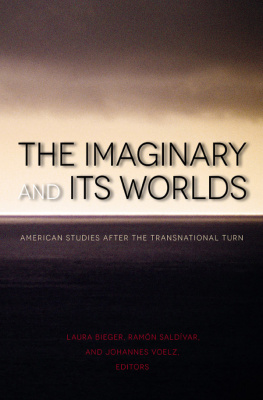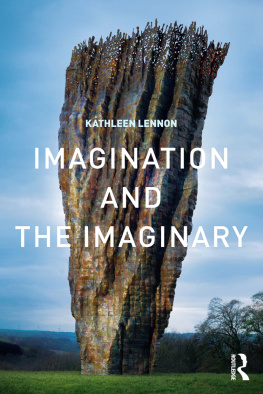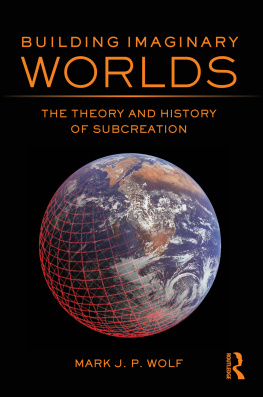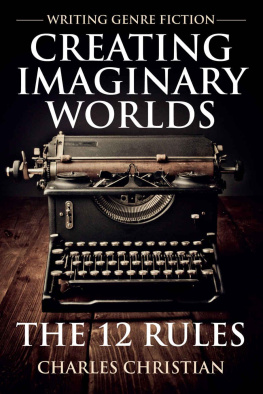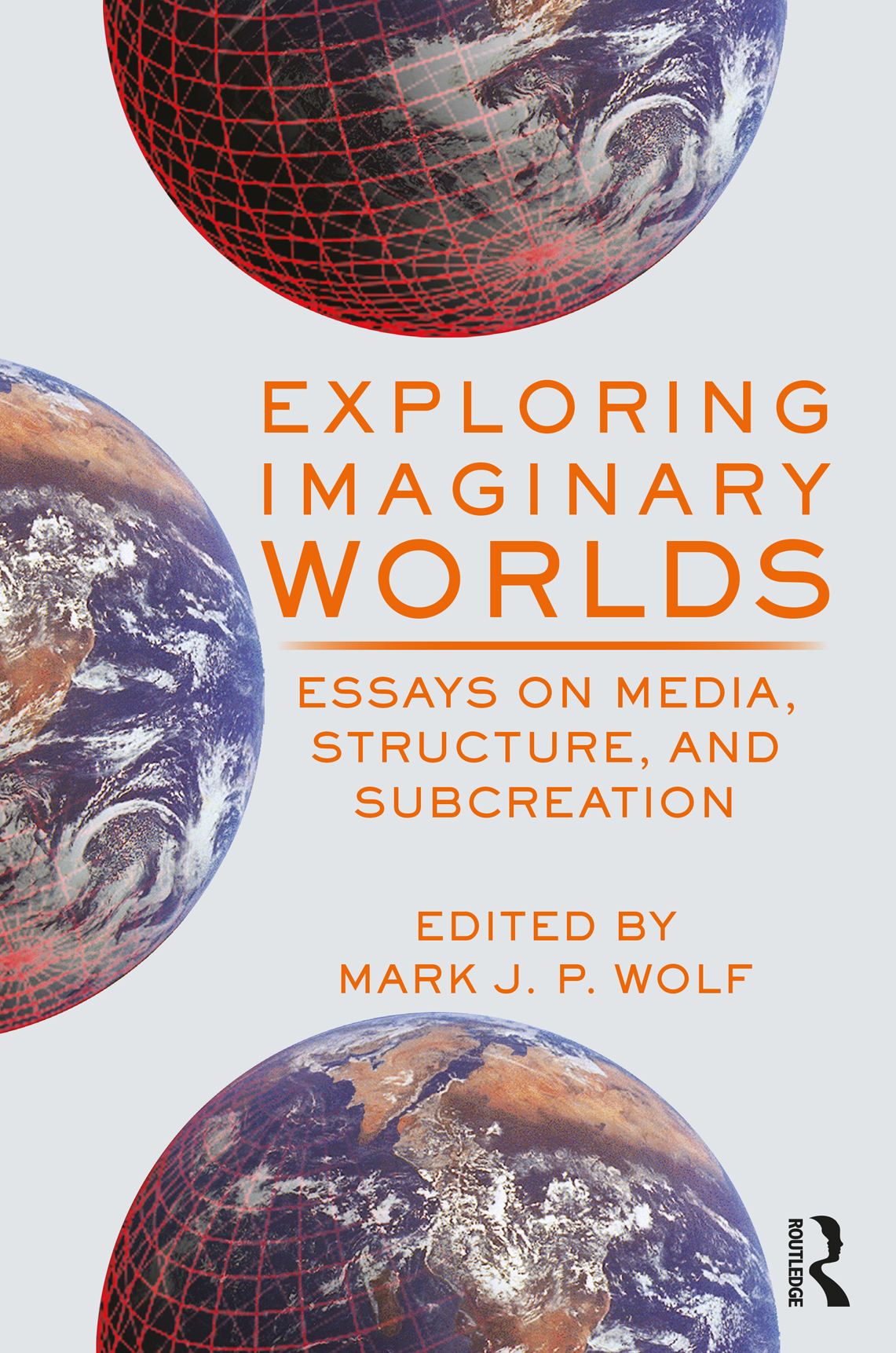
Exploring Imaginary Worlds
From The Brothers Karamazov to Star Trek to Twin Peaks, this collection explores a variety of different imaginary worlds both historic and contemporary.
Featuring contributions from an interdisciplinary and international group of scholars, each essay looks at a particular imaginary world in-depth, and world-building issues associated with that world. Together, the essays explore the relationship between the worlds and the media in which they appear as they examine imaginary worlds in literature, television, film, computer games, and theatre, with many existing across multiple media simultaneously. The book argues that the media incarnation of a world affects world structure and poses unique obstacles to the act of world-building. The worlds discussed include Nazar, Barsetshire, Skotopogonievsk, the Vorkosigan Universe, Grovers Corners, Gormenghast, Collinsport, Daventry, Dune, the Death Gate Cycle universe, Twin Peaks, and the Star Trek galaxy.
A follow-up to Mark J. P. Wolfs field-defining book Building Imaginary Worlds, this collection will be of critical interest to students and scholars of popular culture, subcreation studies, transmedia studies, literature, and beyond.
Mark J. P. Wolf is Professor in the Communication Department at Concordia University, Wisconsin. His 23 books include The Video Game Theory Reader 1 and 2 (2003, 2008), The Video Game Explosion (2007), Myst & Riven: The World of the Dni (2011), Before the Crash: An Anthology of Early Video Game History (2012), Encyclopedia of Video Games (2012), Building Imaginary Worlds (2012), The Routledge Companion to Video Game Studies (2014), LEGO Studies (2014), Video Games Around the World (2015), Revisiting Imaginary Worlds (2016), Video Games FAQ (2017), The World of Mister Rogers Neighborhood (2017), The Routledge Companion to Imaginary Worlds (2018), and The Routledge Companion to Media Technology and Obsolescence (2018), which won the SCMS 2020 award for Best Edited Collection.
Exploring Imaginary Worlds
Essays on Media, Structure, and Subcreation
Edited by Mark J. P. Wolf

First published 2021
by Routledge
52 Vanderbilt Avenue, New York, NY 10017
and by Routledge
2 Park Square, Milton Park, Abingdon, Oxon, OX14 4RN
Routledge is an imprint of the Taylor & Francis Group, an informa business
2021 Taylor & Francis
The right of Mark J. P. Wolf to be identified as the author of the editorial material, and of the authors for their individual chapters, has been asserted in accordance with sections 77 and 78 of the Copyright, Designs and Patents Act 1988.
All rights reserved. No part of this book may be reprinted or reproduced or utilised in any form or by any electronic, mechanical, or other means, now known or hereafter invented, including photocopying and recording, or in any information storage or retrieval system, without permission in writing from the publishers.
Trademark notice: Product or corporate names may be trademarks or registered trademarks, and are used only for identification and explanation without intent to infringe.
Library of Congress Cataloging-in-Publication Data
A catalog record for this title has been requested
ISBN: 978-0-367-19730-8 (hbk)
ISBN: 978-0-429-24291-5 (ebk)
Typeset in Bembo
by codeMantra
A. M. D. G.
Scott Adams was born in Miami, Florida, and is now living in Platteville, Wisconsin. Scott was the first person known to create the first commercial adventure-style game for personal computers with his first game, Adventureland (1978). His company, Adventure International, released games for many major computer platforms throughout the 1980s. Adams worked as a senior programmer for AVISTA in Platteville until 2016. Scott founded Clopas, the PLAY the game! LIVE the adventure! CREATE your story! company in 2017, with his wife of 30 years, Roxanne. Scott and Team Clopas are currently working on Adventureland XL, a Conversational Adventure game, in celebration of the originals 40th anniversary, with a holiday 2019 release. []
Lily Alexander, PhD, has taught in New York since 2003, including at NYU and Hunter College, CUNY. She has a Masters degree in Drama and Film, and a dual doctorate in Anthropology and Comparative Cultural Studies. Her research interests include symbolic anthropology, semiotics of culture, creative algorithms, and evolution of consciousness. She has taught world mythology, history and theory of narrative media, comparative literature, genre studies, science fiction, comedy, story structure, screenwriting, interactive storytelling, and world-building. She has presented at 40+ conferences, including the MIT Media in Transition series and the forum Cognitive Futures. She wrote for the History Channel, ]
Helen Conrad OBriain was born in Wheeling, West Virginia, but has lived most of her adult life in Dublin where she is adjunct Professor of Old English and Old Norse at Trinity College. She has published on Augustinian theology in early insular Latin literature, the Middle English Breton Lais, and Trinity Vergil incunabula, as well as on the works of M. R. James, Dorothy Sayers, and Phyllis McGinley. She is the author, with Laura Cleaver, of the forthcoming catalog of Trinity and Chester Beatty Psalter manuscripts. []
Christopher Hanson is an Associate Professor in the English Department at Syracuse University, where he teaches courses in games studies, digital media, television, and film. His book Game Time: Understanding Temporality in Video Games was published by Indiana University Press in spring 2018 and his next book project is on game designer Roberta Williams. He previously worked for a number of years in video game and software development. His work has appeared in the Quarterly Review of Film and Video, Film Quarterly, the Routledge Companion to Video Game Studies (2014), and LEGO Studies: Examining the Building Blocks of a Transmedial Phenomenon (2014). []
Jennifer Harwood-Smith has a PhD from Trinity College Dublin, and is researching world-building in science fiction. She has contributed two chapters to Battlestar Galactica: Mission Accomplished or Mission Frakked Up?, I Frak, Therefore I Am, and Dreamers in the Night. She has also co-authored Doing it in style: The Narrative Rules of Time Travel in the Back to the Future Trilogy with Frank Ludlow, published in The Worlds of Back to the Future: Critical Essays on the Films. Her essay Fractured Cities: The Twinning of Tolkiens Minas Tirith and Minas Morgul with Fritz Langs Metropolis has been published in J.R.R. Tolkien: The Forest and the City. She is the 2006 winner of the James White Award and has published fiction in Interzone and with Ether Books. []
Andrew Higgins is a Tolkien scholar who specializes in exploring the role of language invention in fiction. His thesis The Genesis of Tolkiens Mythology (which he is currently preparing for publication) explored the interrelated nature of myth and language in Tolkiens earliest work. He is also the co-editor with Dr. Dimitra Fimi of
Next page

